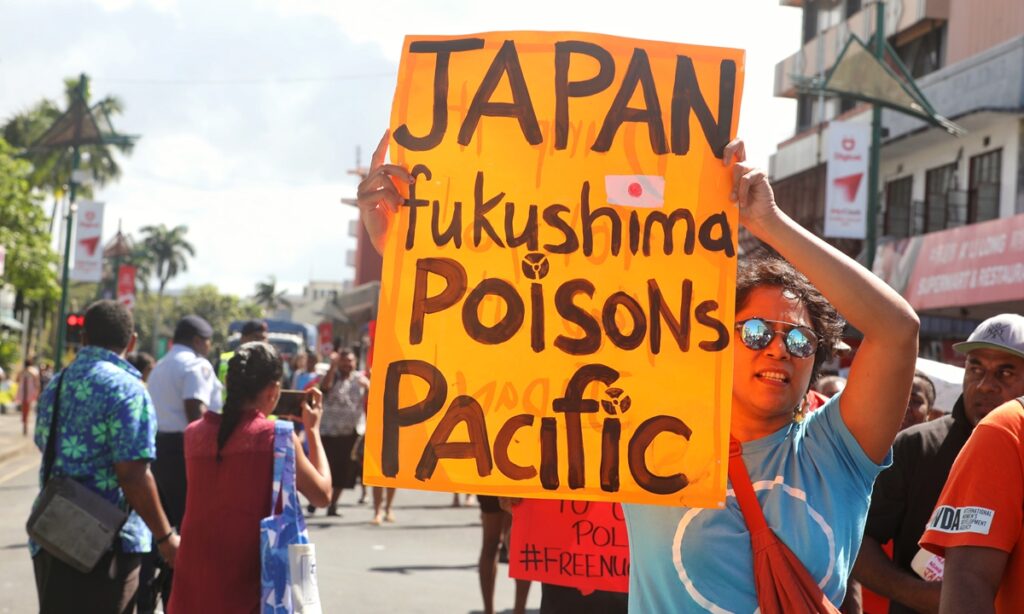After the radioactive liquid exposure at Fukushima Daiichi nuclear power plant occurred on October 25, arousing wide attention around the world, the Chinese Foreign Ministry said on Wednesday that the incident once again shows that the Tokyo Electric Power Company (TEPCO)’s long-standing internal management is chaotic and disorderly, and highlights the importance of establishing effective long-term international monitoring arrangements.
Two men have been hospitalized after they were exposed to radioactive liquid while cleaning a water filtration facility at the wrecked Fukushima nuclear plant. A hose channeling contaminated solutions came loose, spraying the liquid on five workers, the company said.
Recently, the TEPCO revealed that the actual amount of radioactive waste liquid sputtered was far from the 100 milliliters originally announced, but was dozens of times higher, reaching several liters.
“The accident once again shows that TEPCO’s internal management has been disorganized for a long time, and that the public has been covered up and cheated.” Chinese Foreign Ministry spokesperson Wang Wenbin said on Wednesday.
In the 12 years since the Fukushima nuclear accident, TEPCO’s management has been riddled with loopholes in its handling the aftermath, repeatedly delaying and concealing reports of the accident, falsifying key data, and prioritizing corporate interests rather than environmental safety and public health, Wang warned.
Just a day after the exposure, TEPCO announced that it would start the third batch of contaminated water to be discharged into the sea in the near future.
How can a company with such a bad track record ensure that emissions management is safe and reliable for 30 years or more, Wang questioned. How reassuring is Japan’s claim of a safe and transparent ocean discharge plan?
The incident also highlights once again the importance of establishing effective long-term international monitoring arrangements, he noted.
“We urge the Japanese side to respond to the concerns of the international community in a serious manner, dispose of nuclear-contaminated water in a responsible manner, and fully cooperate with the establishment of effective international monitoring arrangements with the full and substantive participation of Japan’s neighbors and other stakeholders,” Wang said.
Moreover, the International Atomic Energy Agency should play a constructive role, assume the responsibility of strict supervision over Japan, and resolutely prevent the dumping of nuclear-contaminated water into the sea from causing long-term harm to the marine environment and human health, he stressed.
(Global Times)




